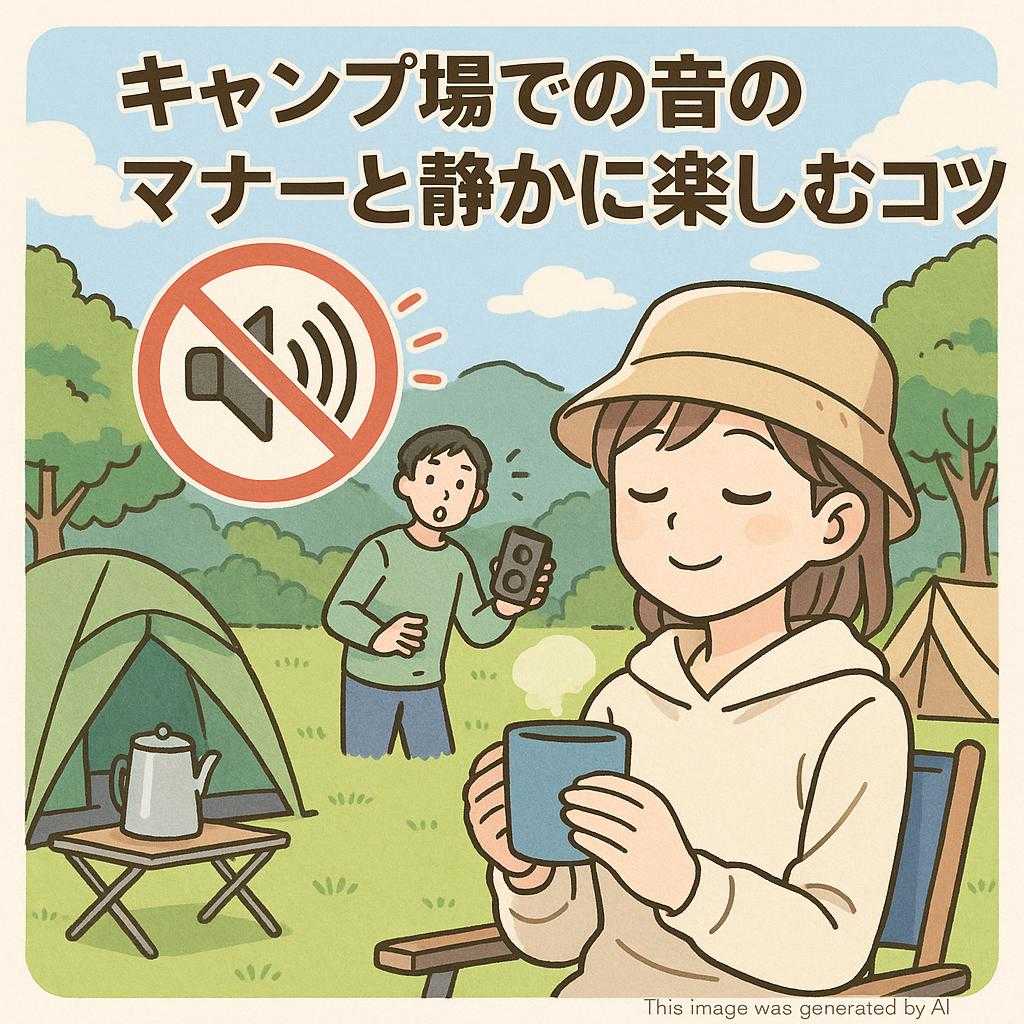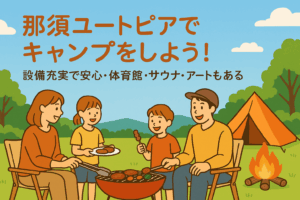
Sound Etiquette at Campsites and Tips for Quiet Enjoyment
Camping is a precious time to refresh in nature. However, considering coexistence with other campers, sound etiquette is very important. At campsites, you can enjoy the music of nature itself, such as the babbling of a river or the sound of the wind passing through the trees. To not spoil these natural sounds, we need to be considerate ourselves.
In particular, avoid speaking loudly or playing music at high volume from speakers. Consideration for others is essential for everyone to relax. Also, many campsites have designated quiet hours. During these times, be especially quiet and strive for harmony with your surroundings.
Furthermore, be mindful during campfires and cooking. The sound of chopping wood or the clanging of pots can be surprisingly loud, so it’s best to act as quietly as possible. By being conscious of these things, both you and others can have a comfortable camping experience.
Sound Etiquette at Campsites and Tips for Quiet Enjoyment
Campsites are places to relax in nature, but it’s important to observe sound etiquette. Especially, considering harmony with other campers, it is necessary to devise ways to enjoy quietly.
Mindset for Enjoying Natural Sounds
At campsites, you can enjoy sounds created by nature, such as the babbling of a river or the rustling of trees in the wind. These sounds have a relaxing effect, and many people visit campsites seeking that tranquility. Therefore, it is important to be considerate of not only yourself but also those around you, and avoid loud voices and noise.
Managing Conversation and Music Volume
Keep conversations and music at a low volume. Especially at night, it is often set as a time to be quiet, and consideration for those around you is required. When using speakers, adjust the volume so that only you can hear it, and make sure to stop the music during quiet hours.
Consideration and Coexistence with Others
At campsites, the distance to adjacent sites is often close, so consideration for other users as well as yourself is necessary. Particularly if you have children or pets, be careful not to let them run around or shout loudly. Also, acting quietly during campfires and cooking can help maintain harmony with your surroundings.
Environmental Protection and Waste Disposal
Environmental protection is also an important etiquette at campsites. Always take your trash home or dispose of it properly at designated places. Bring extra trash bags and check the sorting methods to be safe. Also, since open fires are often prohibited, use a fire pit and enjoy safely.
Creating Quiet Time
Camping allows you to spend a pleasant time by becoming one with nature. Therefore, it is also important to intentionally set quiet times. For example, you can achieve a deeper relaxation effect by stargazing or reading a book. Additionally, creating an atmosphere with small lanterns or candlelight is recommended.
Avoiding Troubles and Communication
If you are bothered by noise from an adjacent site, handle it calmly. Consulting with the manager before directly addressing it can help avoid trouble. Also, to build good relationships, always greet and engage in simple communication.
Summary
At campsites, coexistence with nature and consideration for others are required. By practicing “Sound Etiquette at Campsites and Tips for Quiet Enjoyment,” ensure that all users, including yourself, can have a comfortable time. This awareness of etiquette makes it possible to continue coexisting with the beautiful natural environment. By each person following rules and etiquette, a better camping experience can be achieved.
Q&A on Sound Etiquette at Campsites
Q1: What should I be careful about when enjoying music at a campsite?
A1: When enjoying music at a campsite, it is important to first consider the surrounding environment. Keep the speaker volume low, and especially at night, it is required to spend quietly. Also, pay attention to the codec of the speaker you use, and if you seek high sound quality, match the specifications of the playback device and speaker.
Q2: What is quiet time?
A2: Many campsites have a quiet time set, which is generally from around 10 PM to 7 AM. During this time, it is recommended to turn off lights like lanterns and spend quietly. Be mindful not to make loud noises.
Q3: Are children’s voices considered noise?
A3: Children’s voices while playing are part of the fun unique to campsites. However, don’t forget consideration for other users. Special attention is needed at night and early morning. It is important to enjoy while cooperating with those around you.
Q4: Is there anything I should know about waste disposal?
A4: Campsites have rules for waste separation. Check the rules at check-in and dispose of waste properly. For specific items like plastic bottles, disposal methods may vary by campsite, so be careful.
Q5: Is it okay to make loud noises during the day?
A5: Even during the day, there are other campers around. Be aware that not only you but other users are also enjoying themselves. Avoid making unlimited loud noises just because it is daytime.
When spending time at a campsite, it is important to enjoy while being conscious of harmony with those around you. By following these manners and rules, everyone can have a comfortable time.
Conclusion
Sound etiquette at campsites is important to maintain harmony with other campers. To enjoy the sounds of nature, keep conversation and music volume low, and especially spend quietly at night. Also, do not forget to be considerate of your surroundings during campfires and cooking. Environmental protection is also a crucial element, and it is necessary to always take your trash home or dispose of it properly. By following these manners, all users can have a comfortable time while coexisting with the beautiful natural environment. By each person being aware of and practicing rules and etiquette, a better camping experience can be realized. Cherish quiet times at campsites and enjoy interacting with nature while being considerate of each other.



